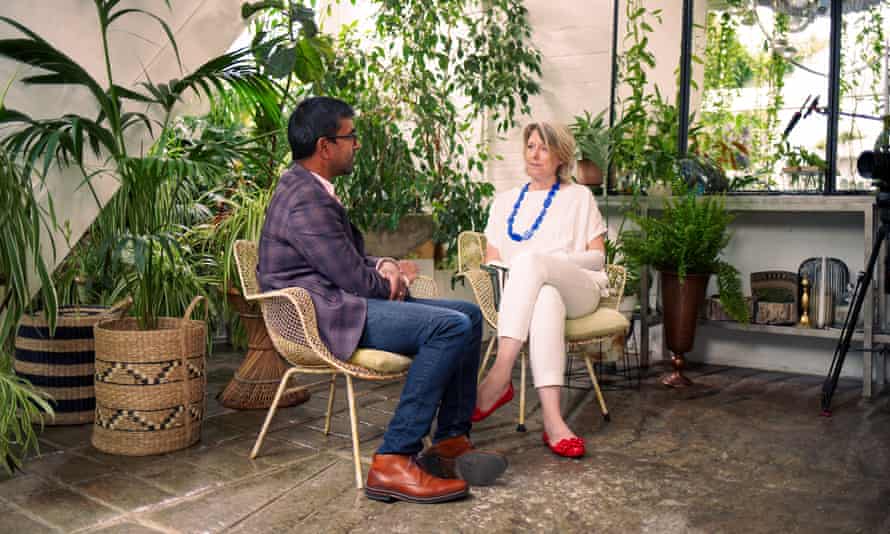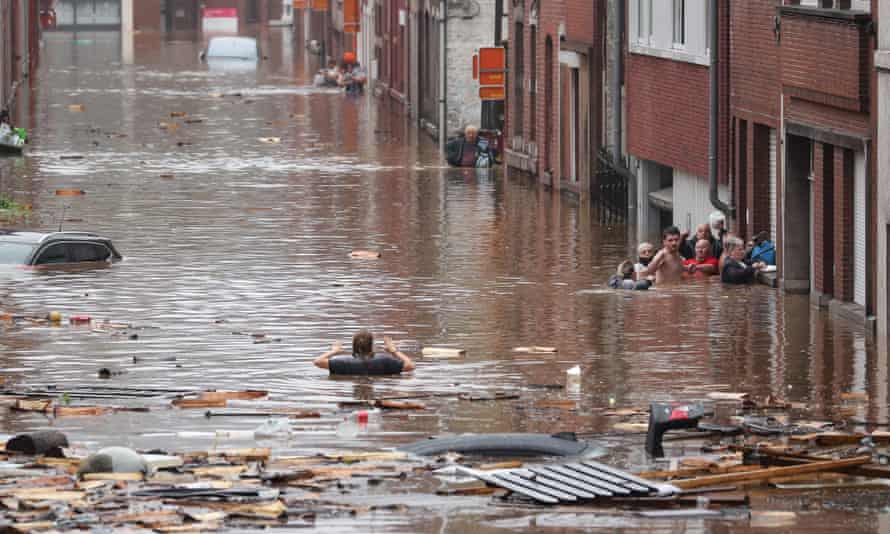How data could save Earth from climate change
Using a name inspired by Indonesian farmers, Subak will share information and fund hi-tech solutions to fight global heating
As monikers go, Subak may seem an odd choice for a new organisation that aims to accelerate hi-tech efforts to combat the climate crisis. The name is Indonesian, it transpires, and refers to an ancient agricultural system that allows farmers to co-ordinate their efforts when irrigating and growing crops.
“Subak allows farmers to carefully synchronise their use of water and so maximise rice production,” said Bryony Worthington, founder and board member of the new, not-for-profit climate action group. “And that is exactly what we are going to do – with data. By sharing and channelling data, we can maximise our efforts to combat carbon emissions and global warming. Data is going to be the new water, in other words.”

Subak will be officially launched on Monday and will select and fund non-profit groups, working around the world, to combat the climate crisis. Early start-ups already helped by Subak include one group that is assisting UK local authorities to boost electric car use, while another is using accurate weather forecasts to make best use of solar power across Britain and limit fossil fuel burning to generate electricity.
These efforts are being launched after a week of headlines that have highlighted how perilous life on Earth is becoming as global heating grips the planet. Floods in Germany and Belgium left more than 150 dead; scientists revealed that the Brazilian rainforest now emits more carbon dioxide than it absorbs; and fires devastated vast tracts of Californian forests. In each case, scientists warned that rising temperatures – triggered by increasing levels of carbon dioxide in the atmosphere – are likely to have played a key role in bringing about these catastrophes.
Urgent action is clearly needed, says Lady Worthington, a noted climate activist and lead author of the team which drafted the UK’s 2008 Climate Change Act, legislation that required the UK to reduce its carbon emissions by at least 80% of their 1990 levels. At the time, Worthington was working with Friends of the Earth but was seconded to government to help design the legislation. For her efforts, she was made a peer in 2010.

Since then, Worthington has continued in the battle against the climate crisis, and in 2019 she read Harvard academic Shoshana Zuboff’s book The Age of Surveillance Capitalism ,which focuses – disapprovingly – on hi-tech companies’ growing use of personal data to make money.
“It woke me up to the fact a whole new world of digital tools was being deployed to generate profits,” says Worthington. “I realised it would be better if those tools could be used to save the planet – to protect the global commons – and not merely to boost share value.”
Worthington contacted Gi Fernando, a tech entrepreneur, and the pair hatched the idea of Subak, which has since been given funding by the Quadrature Climate Foundation (QCF) that was recently set up by the London investment management company, Quadrature Capital. Its aim is to provide initial funding to help groups establish themselves but also to give expert guidance over legal, management and other issues.
“When you start up a company or group, you are quite alone,” says Fernando. “So if you have a community around you that can offer help – HR, finance, tools – that is incredibly helpful. And then, once that group gets on their feet, they can then start to help other startup entrepreneurs wanting to open new avenues in order to help fight climate change.”
Fernando’s words are echoed by several of the groups that Subak has already helped to set up, such as Open Climate Fix. This aims to reduce carbon emissions by improving weather forecasts to make the best use of solar power plants – whose effectiveness is reduced when the weather is cloudy.

“If we get very good data about forthcoming cloud cover, we will know exactly how much solar-generated electricity can be provided in the UK on a given day,” said Open Climate Fix’s co-founder, Jack Kelly. “That will mean we will not need to generate unnecessary electricity from other sources – in particular fossil fuel sources such as gas – because we have underestimated the solar power we will get that day. That will help to reduce carbon emissions.”
Subak’s provision of engineers and software experts who have turned weather satellite images into cloud cover forecasts was a critical piece of assistance, added Kelly.
A similar tale is told by Richard Allan of New AutoMotive, which is monitoring how electric cars are being taken up in communities across the UK. Factors include vehicle use, sales patterns and favourite types of cars and trucks. That data can be fed to local authorities to ensure charging stations, battery replacement services and other resources are provided to maximise take-up of electric cars.
“Replacing petrol and diesel vehicles with electric versions as quickly as possible is going to be extremely important in reducing carbon emissions,” says Allan. “And data about take-up rates in communities will be vital in achieving that goal.”
This view is endorsed by Worthington. “Just as a major corporation has lots of different companies under its control, Subak is going to help set up lots of new outfits, each aimed at boosting efforts to control climate change.
“We are going to be the Diageo of climate protection, though we will not be co-ordinating drink production. We will be generating precious data about the climate.”
Climate crisis in numbers
415: The number of parts per million of carbon dioxide that make up the atmosphere. Before the Industrial Revolution in the mid-1700s, the global average amount of carbon dioxide was about 280ppm. Burning fossil fuels has since added a further 135ppm and if global energy demand continues to grow and is met mostly with fossil fuels, that figure could exceed 900ppm by 2100.
3.6mm: The estimated increase each year in sea level, according to measurements of tide gauges and satellite data. This is a result of human-induced warming of the planet. It is projected that the sea level will rise a further 40 to 80cm by 2100, although future ice sheet melt could make these values considerably higher.
43.1 billion: In 2019 that was the number of tons of carbon dioxide from human activities that were emitted into the atmosphere. Carbon dioxide is a greenhouse gas that absorbs heat and release it gradually over time, like bricks in a fireplace after the fire goes out. Current increases in greenhouse gases have tipped the Earth’s energy budget out of balance, trapping additional heat and raising Earth’s average temperature.
28 trillion: The estimated numbers of tons of ice that our planet has lost between 1994 and 2017. Global warming has a particularly severe impact at higher latitudes and this has been most noticeable in the Arctic. Scientists worry that as ice melts, less solar radiation will be reflected back into space and temperatures will rise even faster. Ice loss will become increasingly severe as a result.
Sources: Royal Society; US National Oceanic and Atmospheric Administration; Scientific American

Recent Comments